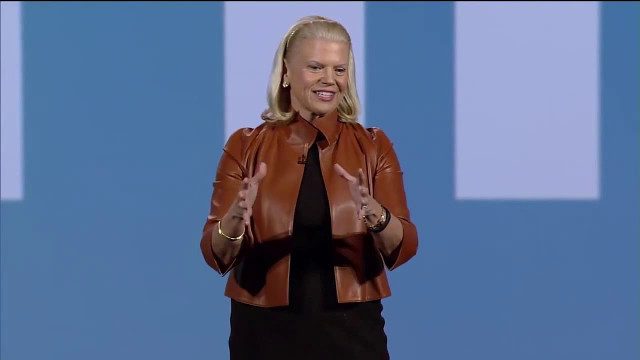
Google is investing in a new subsea cable that connects Singapore to Australia that should greatly improve international bandwidth to those countries and within the countries (especially Australia). But Google shouldn’t celebrate too hard, their Deepmind AI was recently defeated by an open AI solution playing old Atari games.
Analytic companies Tableau and Teradata announced changes to their software models. Tableau is shifting to a subscription model for their BI tools and Teradata was forced to admit their products are falling behind and need a refresh.
IBM is teaming up with Walmart to track food supply chains using blockchain’s general ledger system… once again trying to convince companies that blockchain has commercial applications outside of bitcoin.
Acquisitions
- Oracle and Accenture? A non-starter and here’s why
To give you a flavor of what this means, in its latest filing, Accenture recorded operating income of 13.7%. For its part, Oracle reported operating income of 32%. As you can readily see, there is no comparison between the two companies, despite the fact Accenture has been acquiring and developing its own software for solutions outside the ‘mainstream’ of solutions that Oracle sells.
If a deal was on the table then Oracle would have some very difficult explaining to do about how margins would work given that it is under enough pressure over ambitious cloud based growth numbers. In short, it doesn’t make sense to distract Oracle management with profit table juggling when the company is already focused on other things.
http://diginomica.com/2017/04/03/oracle-accenture-non-starter/
Oracle rejects Accenture buyout speculationAn ORCL spokesperson initially declined comment on Saturday but sent Fortune a categorical denial via email on Sunday.
https://seekingalpha.com/news/3255046-oracle-rejects-accenture-buyout-speculation
- Amazon and Google’s reported interest in Toshiba’s chip unit could be a sign of things to come
While Amazon and Google’s flash needs are large and growing, it’s quite unlikely that either company (unlike Apple) could single-handedly consume all of the flash currently sold by Toshiba, or come close to doing so. Toshiba has been estimated to control about a fifth of a NAND market worth about $35 billion, and expected to see strong growth this year.
Thus in the event that Amazon and Google are eying Toshiba’s flash business, it’s likely to buy a minority stake. One that would let the companies guarantee a stable supply of NAND in the coming years, and the chance to procure it at reasonable prices via long-term contracts.
Artificial Intelligence
- OpenAI Just Beat Google DeepMind at Atari With an Algorithm From the 80s
In one hour training on the Atari challenge, the algorithm reached a level of mastery that took a reinforcement-learning system published by DeepMind last year a whole day to learn. On the walking problem the system took 10 minutes, compared to 10 hours for Google’s approach.
One of the keys to this dramatic performance was the fact that the approach is highly “parallelizable.” To solve the walking simulation, they spread computations over 1,440 CPU cores, while in the Atari challenge they used 720.
This is possible because it requires limited communication between the various “worker” algorithms testing the candidate policies. Scaling reinforcement algorithms like the one from DeepMind in the same way is challenging because there needs to be much more communication, the researchers say.
- Honda, IBM create Dave to solve recall riddle
Dave — for Digital Assisted Virtual Engineer — is a virtual online agent Honda created in conjunction with IBM’s Watson artificial intelligence system. Essentially a highly developed online chat bot run out of Honda’s Chino, Calif., call center, Dave is designed to answer consumer questions about Honda and Acura recalls 24/7.
“The concept of this was to say if we want to really service our customers in general, what is the gap?” Tony Gomes, assistant vice president of the parts, service and technical division at Honda, told Automotive News. “The gap is when the centers are closed.”
Cloud
- IBM’s cloud adds support for Nvidia’s fastest GPUs yet
There is still a chance that Google could beat IBM to the market, though. Late last year, Google also announced that it would support Nvidia’s newest GPUs early this year, but we haven’t heard when exactly the company plans to launch this feature. We asked Google for an updated timeline but haven’t heard back yet.
AWS, too, offers GPU support, of course, and its machines can be outfitted with up to 16 GPUs (those are the older K80 cards, though 16 of those obviously offer a lot of raw computing power, too). Microsoft’s Azure offers a similar setup with support for up to 4 of Nvidia’s slightly older GPUs.
https://techcrunch.com/2017/04/05/ibms-cloud-adds-support-for-nvidias-fastest-gpus-yet/?ncid=rss
- Why Amazon may eventually touch everything we do online
Most of the websites that you already go to run through Amazon. Increasingly, their devices are actually coming into your home, you know, they’re delivering groceries. You will, at some point, not conduct business online without Amazon getting a cut of it. And so, they’ve been very good at slow and steady execution so far, and if they make money off everything you do online, there may be no such thing as stretched too thin.
http://ualrpublicradio.org/post/why-amazon-may-eventually-touch-everything-we-do-online#stream/0
- New Study Shows AWS Losing Ground to Azure in Enterprises
“In the early days of the cloud, Amazon Web Services (AWS) took the lead as the cloud computing vendor of choice,” the survey report said. “But the survey revealed that as the cloud matures, organizations are becoming more comfortable with vendors other than AWS and are using multiple cloud vendors. In fact, while other reports show that AWS still has a lead in cloud market share, the top cloud vendor in this survey — which included only organizations with at least 500 employees — was Microsoft Azure.
https://virtualizationreview.com/articles/2017/04/04/aws-losing-ground-to-azure-in-enterprises.aspx
Software/SaaS
- Tableau switches to subscription pricing for its BI products
Businesses will need to pay $70 per user per month for a license of Tableau Desktop Professional, and $35 per user per month for Tableau Server. That compares to the company’s boxed software prices of $2000 for Desktop, plus a $400 annual renewal fee for software updates, and $800 for Server, plus a $200 annual fee.
It’s a move that will provide additional flexibility, scalability and risk mitigation for Tableau customers, according to Francois Ajenstat, the company’s chief product officer.
- Walmart and IBM Will Use Blockchain to Ensure Food Safety
Yiannas explains in an article by Fortune that his company was inspired to utilize blockchain technology for supply chain monitoring by a deadly E. coli scare that happened about a decade ago. The tainted food was, in this case, spinach, and Yiannas believes it goes back to poor practices of sourcing and tracing the contaminated food products. “Consumers, in general, stopped eating spinach…if you could track and pinpoint where that came from faster, you could alleviate all that and ensure consumer confidence continues,” he said. Beyond that, in a case like this one, you could also potentially reduce the number of people who were sickened or killed by poisoned food.
With an effort at retaining consumer confidence in the event of a similar scare, Walmart has worked with IBM and Beijing’s Tsinghua University to use blockchain to digitally track how pork products in China move. Walmart’s experiment makes use of blockchain technology designed specifically for this purpose by the Hyperledger Project. This is an open source project that was based out of the Linux Foundation and which aims to create blockchain applications for non-cryptocurrency purposes.
http://www.investopedia.com/news/walmart-and-ibm-will-use-blockchain-ensure-food-safety-wmt-ibm/
- Teradata CEO aims to regain ‘customer focus’ with embrace of cloud and open source
He added: “We were shying away from new technologies like open source and cloud. We weren’t being as aggressive as we should be in moving forward to drive our offering to the point where the customer wanted.”
However, he said that the vendor has moved at “lightning speed” over the last year to address some of the concerns.
Other
- Google invests in new subsea cable that connects Singapore to Australia
The cable will feature two fiber pairs with a total capacity of about 18 terabits per second — with the option to expand in the future.
As Google notes, that’s enough to power 8 million simultaneous Google Hangout video calls (or are those Hangout Meet calls now?). Google, however, is obviously sharing the capacity here, so it won’t quite be able to handle all of those calls at any given time. It’s also worth noting that 18 terabits isn’t extremely fast by today’s standard. The subsea cable between Hong Kong and Los Angeles Google and Facebook invested in last year tops out at 120 terabits per second.
- Expect to see BlackBerry’s name (and tech) on more devices
On the company’s earnings call, CEO John Chen said (via Seeking Alpha) that “We are now expanding to the next phase of our licensing program. This will focus on a broader set of endpoints. What this might mean, and I make no promise, is that you may soon see a BlackBerry tablet, and it will also extend to cobranded handset with IoT and Enterprise of Things to EoT devices. These endpoints will run our software and security features and be cobranded Secure by BlackBerry.”
https://www.engadget.com/2017/04/01/expect-to-see-blackberrys-name-and-tech-on-more-devices/
- EFF: Verizon will install spyware on all its Android phones (update)
But the EFF spent a little time staring at AppFlash’s privacy policy, where it’s revealed that the software will vacuum up any and all of your private data. For instance, it’ll snag your cell number, device type, operating system and the apps or services that you use. More crucially, the app will also harvest the details of everything installed on your device, your location and the contact details of everyone in your phonebook.
Verizon admits that the information will be shared within “the Verizon family of companies,” including that of (Engadget parent) Aol. From there, the data will be used to “provide more relevant advertising within the AppFlash experiences and in other places.” The other places being a euphemism for banner and display advertising all across the web.
https://www.engadget.com/2017/03/31/eff-verizon-will-install-spyware-on-all-its-android-phones/
- Follow-up to SourceCast Episode 65: H-1B Visa Overhaul Could Actually Benefit Big Tech Companies
“The top 15 job shops are all pretty much all from India. They get 85 percent of the H-1Bs. If they cut that number, then the American firms will get the bigger slice of the pie,” Shusterman said. “A lot of the Apples or Googles are paying over $100,000 a year. They’re going after top talent. This memo is really going after the lowest paid people.”
Photo: Thomas Shellberg








